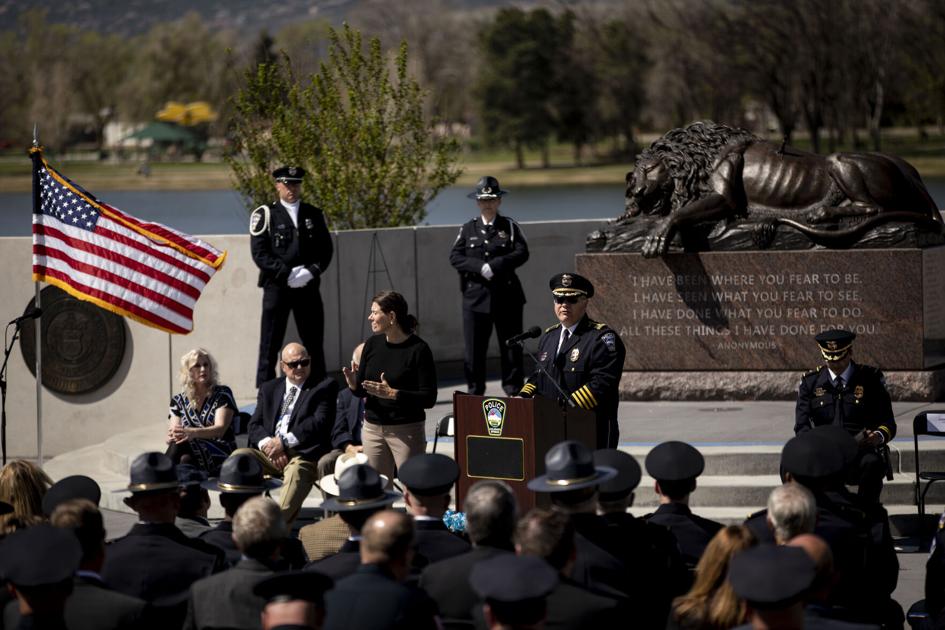Sometimes it takes a crime wave to bring politicians to their senses.
Just before the end of this year’s legislative session, lawmakers killed a bill that would have had a disastrous impact on law and order. It would have prohibited courts from issuing monetary bail bonds for those charged with even class 4, 5 or 6 felonies in most cases. And it would have barred police from arresting suspects in the first place for traffic offenses, petty offenses, municipal offenses and all misdemeanors.
The proposal was yet another plank of a well-intended but hopelessly naïve justice-reform platform. Ruling Democrats at the Capitol have been touting it since last summer’s street unrest and clashes with cops. Second chances, “restorative justice,” “equity” and all that.
Accompanying it has been the would-be reformers’ distrust of the justice system. Especially, police. We have been told repeatedly that cops as a whole are violent and confrontational and provoke rather than calm criminal suspects. And that they are racist as an institution — no matter how many men and women of color serve in their ranks.
And yet, with only hours to go before the session adjourned, two Democrats crossed over to vote with minority Republicans in a key committee, derailing the measure. Coloradans can breathe easier as a result. It wasn’t the first such occurrence this session when cooler heads and a longer view prevailed over the blind dogma of those who scorn cops and seek to coddle criminals.
The turnabout no doubt was attributable in part to the buzzsaw of opposition such bills ran into at the Capitol. There was push-back from law enforcement, sure, but also from wide-ranging stakeholders including local government.
More fundamentally, though, it was the hard data that seems to have scared at least some of the soft-on-crime lawmakers straight. Coloradans of just about every political stripe as well as those of every race, economic status — you name it — are feeling the heat of a sustained crime wave. The Colorado Bureau of Investigation has recorded surges in virtually every crime category, notably auto theft, property crime and violent crime. Auto thefts statewide jumped an astounding 40% from a year earlier, while violent crime rose a disturbing 6.5%. Last year in Denver, homicides were up more than 50% over the previous year.
In other words, outside the rarefied air of the Capitol rotunda — out in Colorado’s communities — crime has been alarming. And unlike some politicians, everyday Coloradans haven’t been willing to throw caution to the wind. They simply want to call the cops — and to know the cops can respond with the tools they need to keep our cities, suburbs, towns and vast rural expanses as safe as possible.
With the 2021 session in the rearview mirror, our hope is that lawmakers are at last ready when they reconvene next year to move on from ridiculous proposals that essentially would let criminals and criminal suspects go free.
Fortunately, we no longer are hearing absurd calls to “defund police” or to turn the police force into a “peace force” — at least, not in Colorado. In Portland, Ore., it’s another story. As noted in a news report in The Gazette this week, constantly maligned police there have had enough.
The city has faced continuous street riots that began last summer, and responding police have received minimal support from their city’s political leadership. Now, officers who had volunteered for a highly trained, specialized crowd-control unit have resigned en masse. They have done so as a protest of their own — to denounce what they say is the politically motivated indictment of one of their team members. The officer is accused of fourth-degree assault stemming from a baton strike against a protester last summer. Police contend the officer’s baton “push” to a woman’s head was accidental.
The Associated Press reports that while protests have significantly decreased in the city, there are still smaller incidents staged by self-styled anarchists in some pockets of Portland. Relying on regular police to control the lawless streets will be a lot more challenging. But the special unit’s members have had their fill, it seems.
In October, the head of Portland’s police union had written the city’s mayor and police chief, calling on them to “stand up and publicly support Police Bureau members who voluntarily serve on the Rapid Response Team.”
He wrote, “Our … members do not volunteer to have Molotov cocktails, fireworks, explosives, rocks, bottles, urine, feces and other dangerous objects thrown at them.”
How many Colorado cops feels similarly unappreciated in what at times truly is a thankless job? We need our police. Portland’s sad circumstance offers a cautionary tale for the rest of us.
This content was originally published here.

